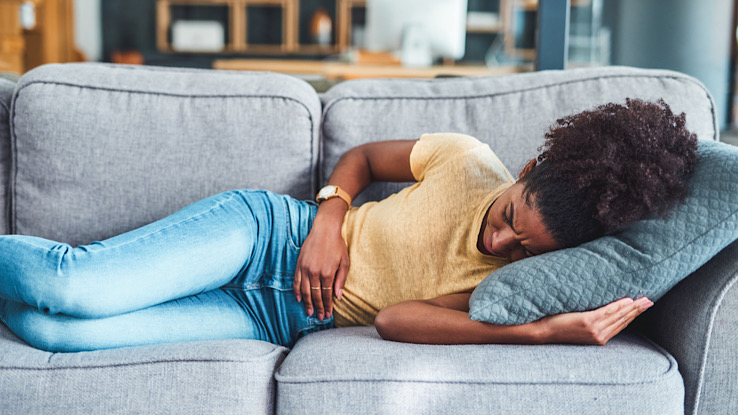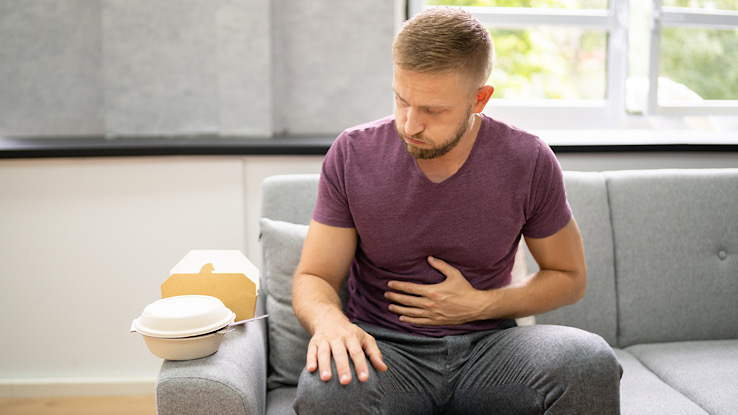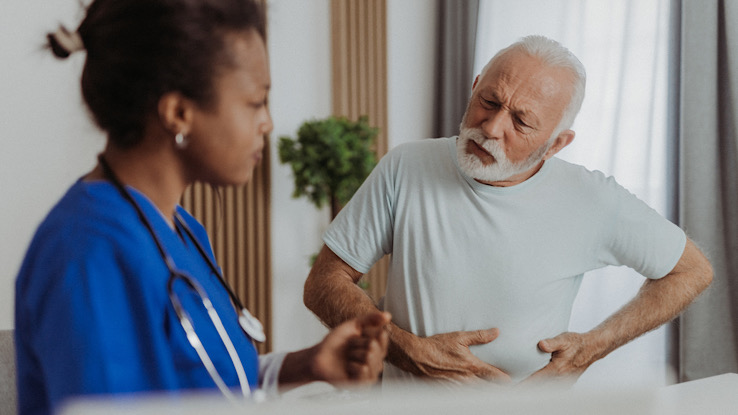
You may have felt discomfort and swelling in your stomach at some point in your life. This is called bloating —- and most people experience it as well.
What Is Bloating?
Bloating is when your stomach feels swollen after a meal that can be caused by a lot of gas or disruptions in muscle movement. Bloating can make your stomach look larger, and it often causes pain and discomfort.
Read on to discover why you feel bloated and how to prevent and reduce your bloating quickly.
What Are the Causes of Bloating?

The best way to get rid of bloating and prevent it the next time is to know the cause. Bloating can be triggered by a wide variety of reasons, and some common causes of bloating are:
Food choices:
- Too much salt
- Too much sugar
- Not enough fiber
- Food allergies
- Fizzy or carbonated drinks
- Raw veggies
- Spicy foods
- Fatty foods
- Acidic drinks
Hormonal changes:
- Premenstrual syndrome
- Stress
- Pregnancy
Medical conditions:
- Lactose intolerance
- Fructose intolerance
- Irritable bowel syndrome
- Celiac disease
- Acute gastrointestinal infection
- Blockage
Your doctor will be able to help you determine if you have any medical conditions that could cause bloating. For example, lactose intolerance is common and may lead to bloating.
Lifestyle choices:
- Smoking
- Stress
- Chewing gum
Tips to Reduce or Prevent Gas and Bloating.
You can do easy things to help you feel better while bloated. If bloating still occurs, you can follow our 5 easy tips to reduce the bloating.
Move
If you feel bloated, try going for a walk. Regular physical activity gets your bowel moving, which helps release the excess gas which might cause bloating. Exercise can help reduce your bloating, and it can also help prevent bloating. If you don’t like walking, you can try other forms of exercise like yoga or pilates. Both stretch the muscles in the abdomen — this helps to release the gases from your intestine and reduce bloating.
Try a bloat-reducing abdominal massage
A massage can help reduce the pain caused by bloating. During the massage, it’s necessary to follow the way the bowel takes through the abdomen.
Begin with both hands just above your right hip and divide the stomach into 4 parts. Starting in the lower right side. Move your hands in a circular motion, and go upwards into the upper right side. Next, move straight across the upper belly to the left upper side, and increase the pressure as you go down to the left lower side.
You can repeat this as often as you like. Please be gentle with yourself and contact your doctor if you have a lot of pain.
Reduce stress
- If you feel bloated, try an activity that helps you to relax and help you feel less stressed, like:
- Take a warm soaking bath
- Relax while reading a book
- Go for a walk
- Try meditation and mindfulness techniques
- Try yoga
Try to change eating habits that cause bloating
There are many things you can try to reduce bloating — but one thing you might need to change is your eating habits. Here are some tips:
- Eat more fiber. Eating fiber can help prevent bloating, but most people don’t eat enough fiber.
- Replace fizzy/carbonated drinks. Consider replacing your sparkling waters and fizzy drinks with plain water. You can add a tiny bit of juice if you don’t like plain water, but don’t drink juices all the time.
- Stop chewing gum. You can avoid chewing gum which might help reduce bloating. If you chew gum, you might ingest some air and swallow it while chewing, which leads to bloating.
- Eat at regular times. If you eat at regular times throughout the day — eating several small meals— it can help your digestive system.
- Eat slower. When you eat too fast, you’re more likely to ingest excess air, which can cause bloating. Slow down while you eat and close your mouth while chewing.
If you want to track your eating habits, try a food diary to determine which ones may cause your bloating. In your food diary, you can write down what you are eating and see the next day if you feel bloated. You can also talk to your doctor about special diets that help with bloating.
Check with your doctor

Lastly, you should see your doctor if bloating becomes a chronic problem. If bloating causes increasing pain and the bloating that seriously affects your quality of life, see your doctor as soon as possible.
Resource Links
- “Bloating and Abdominal Distension: Clinical Approach and Management” via Advances in Therapy
- “The effect of a short-term physical activity after meals on gastrointestinal symptoms in individuals with functional abdominal bloating: a randomized clinical trial” via Gastroenterology and Hepatology from Bed to Bench
- “Management Strategies for Abdominal Bloating and Distension” via Gastroenterology & Hepatology
- “Diet in irritable bowel syndrome: What to recommend, not what to forbid to patients!” via World of Gastroenterology





